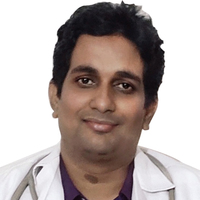Baidyanath Saptavinshati Guggulu Information
Baidyanath Saptavinshati Guggulu is an ayurvedic medicine that is primarily used for the treatment of Piles, Scabies, Digestive Disorders. Secondary and off-label uses of Baidyanath Saptavinshati Guggulu have also been mentioned below. The key ingredients of Baidyanath Saptavinshati Guggulu are Giloy, Guggul, Mustaka (Nut Grass), Pippali, Vidanga, Trikatu, Triphala, Chavya. The properties of which have been shared below. The correct dosage of Baidyanath Saptavinshati Guggulu depends on the patient's age, gender, and medical history. This information has been provided in detail in the dosage section. Kanchnar guggulu
Ingredients of Baidyanath Saptavinshati Guggulu
Baidyanath Saptavinshati Guggulu Benefits
Baidyanath Saptavinshati Guggulu is used to treat the following -
Main Benefits
- Piles (Read More - Ayurvedic treatment for Piles)
- Scabies
- Digestive Disorders
Other Benefits
Baidyanath Saptavinshati Guggulu Dosage
This is the usual dosage recommended in most common treatment cases. Please remember that every patient and their case is different, so the dosage can be different based on the disease, route of administration, patient's age and medical history.
| Age Group | Dosage |
| Adult |
|
| Geriatric |
|
Baidyanath Saptavinshati Guggulu Side Effects
No side effects of Baidyanath Saptavinshati Guggulu have been reported in the medical literature. However, you should always consult your doctor before using Baidyanath Saptavinshati Guggulu.
Baidyanath Saptavinshati Guggulu Related Warnings
-
Is the use of Baidyanath Saptavinshati Guggulu safe for pregnant women?
Baidyanath Saptavinshati Guggulu can cause unwanted effects on pregnant women. If you experience any such side effects, stop taking Baidyanath Saptavinshati Guggulu right away. Take your doctor's advice before taking it again.
Moderate -
Is the use of Baidyanath Saptavinshati Guggulu safe during breastfeeding?
Breastfeeding women can feel side effects of Baidyanath Saptavinshati Guggulu. Stop taking Baidyanath Saptavinshati Guggulu immediately if you see any side effects. Talk to your doctor after that and take it again only based on your doctor's advice.
Moderate -
What is the effect of Baidyanath Saptavinshati Guggulu on the stomach?
Baidyanath Saptavinshati Guggulu is not harmful for the stomach.
Safe -
Is the use of Baidyanath Saptavinshati Guggulu safe for children?
Children may experience moderate side effects from using Baidyanath Saptavinshati Guggulu. If your child feels the same, then discontinue its use and follow your doctor's advice.
Moderate -
Can I take Baidyanath Saptavinshati Guggulu with alcohol?
It is difficult to say anything about the effect of Baidyanath Saptavinshati Guggulu and alcohol. No research has been done on this.
Unknown -
Does Baidyanath Saptavinshati Guggulu cause drowsiness?
Baidyanath Saptavinshati Guggulu does not cause dizziness or drowsiness, so you can drive a vehicle or operate machinery also.
No -
Is this Baidyanath Saptavinshati Guggulu habit forming or addictive?
Currently, no research suggests that the use of Baidyanath Saptavinshati Guggulu can lead to addiction.
No
How to Take Baidyanath Saptavinshati Guggulu
You can take Baidyanath Saptavinshati Guggulu with following:
-
Can I take Baidyanath Saptavinshati Guggulu with Honey?
It's safe to use honey with Baidyanath Saptavinshati Guggulu. -
Can I take Baidyanath Saptavinshati Guggulu with LukeWarm Water?
There is no harm in having lukewarm water with Baidyanath Saptavinshati Guggulu.
General precautions for Baidyanath Saptavinshati Guggulu
This medicine data has been created by -

BAMS, Gastroenterology, Dermatology, Psychiatry, Ayurveda, Sexology, Diabetology
10 Years of Experience